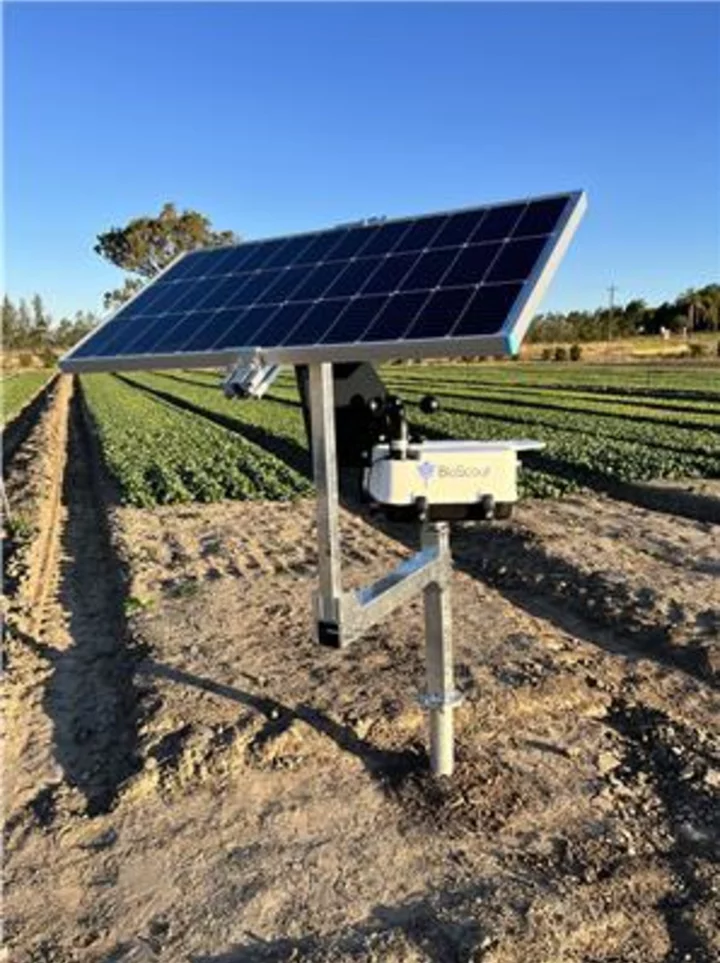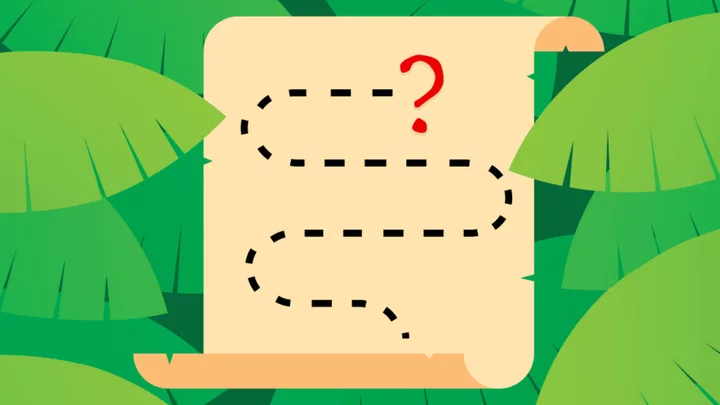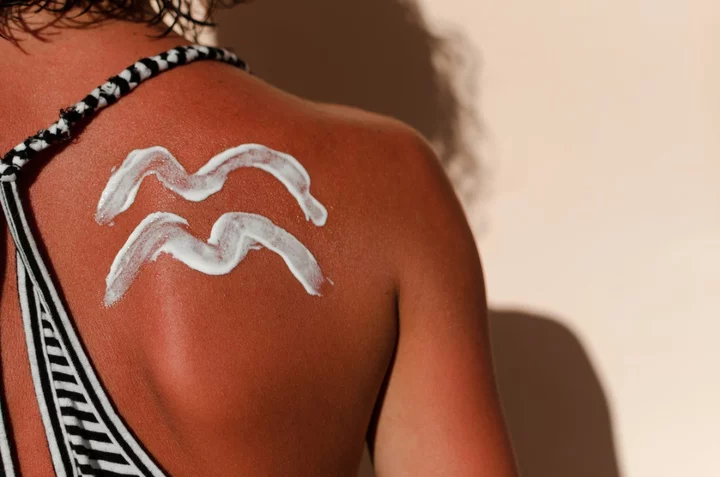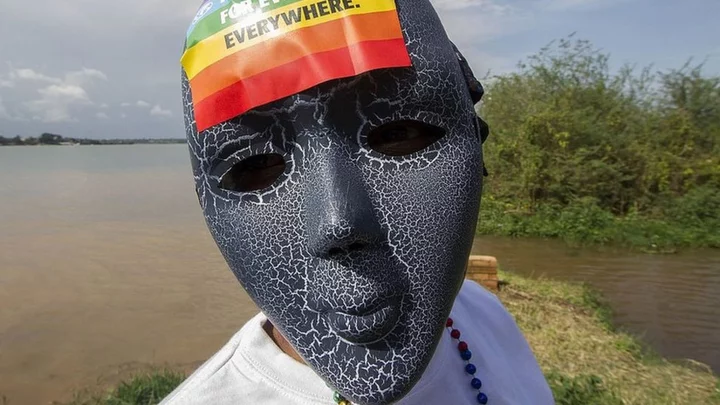
Arnold Schwarzenegger confirms he is 'out' of Expendables 4: 'Stallone really understood'
Arnold Schwarzenegger has confirmed he will not reprise his 'Expendables' role as Trench Mauser in the fourth film in the franchise.
2023-05-30 15:21

Sam Smith teases 'special' collaboration with Brazilian pop star Anitta
Sam Smith and Anitta are yet to unveil their collaboration.
2023-05-30 15:18

Queer parents need everyone’s support, not people calling us ‘breeders’
A recent book called The Queer Parent, written by Lotte Jeffs and Stu Oakley, calmly opens with the line: “Ninety per cent of queer parenting is simply… parenting”. It’s a fair point. Whether you’re male, female or non-binary, single or partnered, and regardless of your sexuality, all of us who parent aim to meet the exact same needs for our children, day in, day out. The title caught my attention because I think there’s something very timely and profound about the act of being a gay or queer parent today. It’s doing the work that many (dare I say most) people want to see in society – namely raising a new generation of non-toxic humans, making the world a happier place to be different – but in the slow grind of parenthood, not just in the quick flash of activism. I really believe gay and queer parents are changing the world, in a very deep yet unsexy way. Mum and mummy being at the school gate, dad and daddy collecting a child from nursery, or as we’ll get into, dad giving birth to a baby son or daughter. They’re changing the world by being active, visible and engaged parents. But there’s a slightly awkward, under-discussed aspect to this that has truly got under my skin in the eight years since I’ve been a parent. I’m pansexual, so I fancy men as well as women, non-binary people and pans. But oddly I’ve always been frightened to talk about parenthood with most of my avowedly gay male friends – because I’m never quite sure if anyone’s going to derogatorily refer to me as a “breeder” or not. It’s hard to know how well-known the term “breeder” is. I personally used to hear it a lot more back in the mid-Noughties when I was in my early twenties. It’s essentially a slightly bitchy term that’s interchangeably derogatory to people with kids and/or straight people as a whole. As a word, it’s a pretty effective zinger. Straight people have tended to use sexual imagery to define and denigrate gay people. It seems fair that gay people would do the same to heterosexuals. “Breeder” reduces the pleasures of sex to a slightly dehumanised process. In fact, unconnected to sexuality, Gulliver’s Travels author Jonathan Swift used the term to reduce people to a brutal, almost farmyard functionality in a satirical essay from 1729. It’s important to establish that I’m not here to spank gay men on the bum. Neither am I here to accuse them of “heterophobia” either – which I’ve put in quote marks because I’m dubious that it can even exist as a concept. If I was an exclusively gay guy, I might robustly define my sexuality against heteronormativity in ways which could be punchy and sharp. I might also – by virtue of a lifetime of homophobia and trauma that may have started in the home as a child – have latently negative views about the whole concept of family. But I am who I am now, and despite understanding all this, I’m still getting weary of it as a trope, and also as a reason not to talk about the many genuine ecstasies of parenthood. I like being a dad and I like dating guys. These things shouldn’t be so controversial – yet weirdly, I find it’s gay men who have more slack-jawed incomprehension of these two facts than any other group in society. My own personal beef is very trifling in the scheme of things, however. The much bigger picture is that – newsflash – gay, queer and trans people have kids. Loads of them. While data is limited, there was a 40 per cent rise in same-sex parents from 2015 to 2019. Anecdotally, it seems to be a much greater phenomenon than is reported. The same goes for the rarely examined hardships LGBT+ people typically go through to even have kids: namely the incredible anguish of IVF and the epic emotional journey of surrogacy. You’d expect increased visibility of gay and queer parents would have phased out the use of the word “breeder” as a pejorative, but weirdly it lives on – especially on TikTok where, perhaps like an unkillable echo of my own twenties, it’s mostly young people using the word as a way of defining their queerness and riling up straights. What makes my heart sink, beyond knowing that a younger generation is using the same dumb-ass words people said 20 years ago, is that this is a really, really bad time to start being unsupportive of gay parents. While queer visibility may feel greater than ever, the world is going backwards in many respects. Even just in the realm of children’s culture, things as harmless as a drag artist reading stories can draw an angry mob of culture warriors – as happened at Tate Britain in London in February. Look at Florida – once the home of fictional queer icons The Golden Girls, now home to Republican governor and presidential hopeful Ron DeSantis – and you’ll see books with titles as benign as This Book Is Gay banned as a result of his vociferously “anti-woke” legislation. We all know that creating this type of hostile environment will surely result in more bullying, more hatred, more lives blighted. While queer visibility may feel greater than ever, the world is going backwards in many respects It’s pathetic, cruel yet grimly successful at the same time. With every small news story or stunt, a palpable hostility festers. Thus anything that drives a wedge between gay/queer people and parenthood is a bad look right now – especially with elections looming in the US and Britain that I fear will see the issue of gender identity playing a huge, calculatedly divisive role. What better way to rebuff this negativity than by strongly standing up for gay and queer parents. Specifically, we could start standing up for men having babies. Trans men like the British journalist Freddy McConnell who a few years back gave birth to a child who seems to be doing great (and likes a good splash in the sea), or Iowa-born Tanius Posey, who thankfully was able to breastfeed his child despite simultaneously getting online abuse for it. Logan Brown, also from the UK, is a trans man who has been documenting his pregnancy over the past few months with genuine clarity and candour. He gave birth to his daughter Nova just over a week ago. Celebrated gay NYC artist Keith Haring frequently placed a baby into his work, a shining symbol of hope and playful optimism for the future. Maybe in the same spirit as Haring, we could all do with a new beginning in our attitudes to gay and queer parenting, inspired by a rather miraculous baby such as Nova. Read More How OCD can destroy relationships: ‘I had the obsessive fear that I might cheat’ Women with body hair remain a cultural taboo, and I can’t see it changing Flip-flops, nudity and ‘up the vajayjay!’: How the red carpet became a platform for protest
2023-05-30 14:27

Covid: Top Chinese scientist says don’t rule out lab leak
The man who led China's pandemic response says inquiries into its origins should consider everything.
2023-05-30 13:19

Huawei ICT Competition 2022-2023 Global Final Held in Shenzhen — 146 Teams from 36 Countries and Regions Win Awards
SHENZHEN, China--(BUSINESS WIRE)--May 29, 2023--
2023-05-30 10:57

GAAP Is Excited to Announce the Recent Close of an Undisclosed Investment Round Into BioScout - Australia
SASKATOON, Saskatchewan--(BUSINESS WIRE)--May 29, 2023--
2023-05-30 04:56

UAE announces groundbreaking mission to asteroid belt, seeking clues to life's origins
The United Arab Emirates has unveiled plans to send a spaceship to explore the galaxy’s main asteroid belt, the latest space project by the oil-rich nation after it launched the successful Hope spacecraft to Mars in 2020
2023-05-30 02:59

Uganda enacts harsh anti-LGBTQ law including death penalty
KAMPALA Uganda's President Yoweri Museveni signed one of the world's toughest anti-LGBTQ laws, including the death penalty for
2023-05-30 02:21

10 Explorers Who Vanished Without a Trace
From a record-breaking mountain climber to a British adventurer who may have died searching for a city that doesn’t exist and beyond, these explorers have fates that are shrouded in mystery.
2023-05-30 00:17

A raccoon was euthanized and tested for rabies after it was brought to a Maine pet store and customers kissed it
A raccoon was euthanized and tested negative for rabies after it was brought to Maine a pet store for a nail trim, officials said, potentially exposing customers who kissed the animal to the dangerous virus.
2023-05-29 22:17

The truth about applying after-sun on sunburnt skin, according to the experts
After the UK recorded its hottest day of the year on Sunday, with some parts of southern England reaching 31C, many could be waking up with sore, sunburnt skin today. Taking care of your skin after excessive sun exposure is incredibly important, as failing to do so could lead to long-lasting damage. However, if your first course of action after sustaining a sunburn is to immediately buy and apply after-sun, then you may not be doing an adequate job. According to the experts, applying after-sun could do your skin even further harm if you don’t take a thorough look at the ingredients. That’s why it may be a wise idea to opt for an aloe vera gel instead. “After-sun formulas tend to have rich, thick consistencies containing oils, which create an emollient barrier on top of the skin trapping in the heat in the upper layer of the epidermis and exacerbating the inflammation and ‘burn’ feeling on your face,” Michaella Bolder, Time Bomb skincare expert tells to The Independent. “Plus, many over the counter after-suns will contain chemicals and/or fragrance. This will just irritate the damaged skin!” Aloe vera has been highly regarded for a very long time due to its remedial properties, Lorraine Shrivener, director of Eden Skin Clinics, explains. “Aloe vera has been a trusted skin saviour for many years,” she says. “With its immediate cooling effect to the skin, it’s a firm favourite for post-suncare.” According to Ms Shrivener, aloe vera is most potent when attained as a pure, clear gel. While gels allow heat to escape from the skin, thicker creams that have been designed to lock in moisture could trap heat within the skin, making it feel cooler rather than hotter. However, as medical director of CosmedicsUK and GP Dr Ross Perry points out, the medicinal properties of aloe vera have not technically been affirmed by scientific research. “Aloe vera is a traditional herbal remedy believed to reduce sunburn symptoms,” he explains. “There is no scientific evidence in support of its use for sunburn, but anecdotal evidence is that it is soothing and safe and can feel cooling.” Aloe vera is a plant species that can trace its origins to the Arabian Peninsula. Mentions of aloe vera as a curative ingredient can be found in the Ebers Papyrus, from 16th Century BC, and in Pliny the Elder’s Natural History, which was written in the mid-first century AD. Despite the supposed lack of scientific evidence to back its use as a treatment for sunburn, many health professionals still recommend it for soothing irritated skin. “Aloe vera is thought to have a myriad of positive effects on skin, especially sunburnt skin,” says Dr Natalie Spierings, consultant dermatologist at Dermatica. “True clinical effectiveness has yet to be established. But aloe vera is not harmful and it might aid in helping calm down sunburnt skin, so it is worth giving it a try.” While some skincare experts would advise opting for a clear aloe vera gel instead of a heavier, moisturising after-sun when treating sunburn, others would suggest simply finding an after-sun that contains the plant. “After burning the skin you should think cool and repair,” says Ms Bolder. “The best way to do this is to apply a formula with a high water and high aloe vera content - the more natural and gentle the better! “Aloe vera has quite impressive cooling, healing and antiseptic properties so will beat a generic after-sun every time.” Using an after-sun can still be beneficial if you make sure that the ingredients are gentle and natural as possible. However, if you’re not entirely sure of whether a specific after-sun will do more harm than good, then going for a clear aloe vera gel would likely be your safest option. With around 16, 200 new cases of melanoma skin cancer reported in the UK every year, according to Cancer Research UK, looking after your skin is of the utmost importance during the hotter months. Dr Vikram Rajkomar, a consultant dermatologist at Pall Mall Medical who specialises in the treatment of skin diseases and skin cancer, recommends speaking to a consultant dermatologist as soon as possible if pain caused by sunburn persists. Read More The truth about applying after-sun on sunburnt skin, according to the experts Mum’s warning after viral TikTok hack left skin peeling from her face TikTok Influencer hospitalised for after horse falls on her at Arizona ranch Teenagers are increasing their chances of cancer with 'sunburn art' Europe heatwave: Tourists warned as temperatures set to soar
2023-05-29 21:16

Uganda's President Museveni approves tough new anti-gay law
UNAids and the US warn that Uganda's progress in tackling HIV is now in "grave jeopardy".
2023-05-29 20:56
